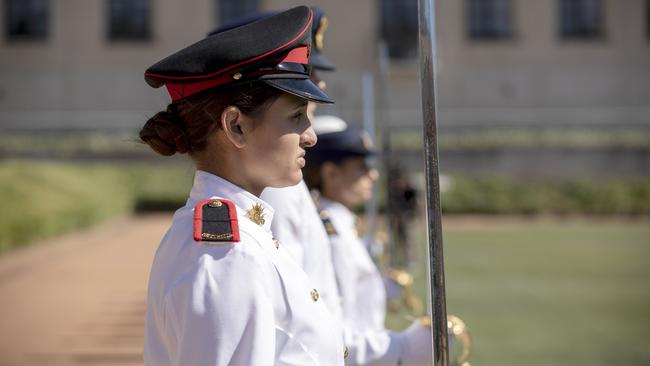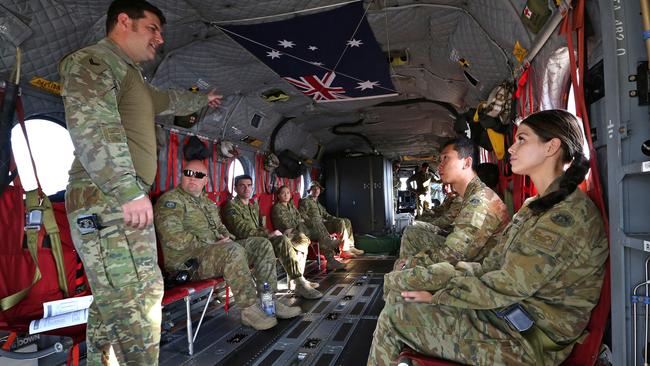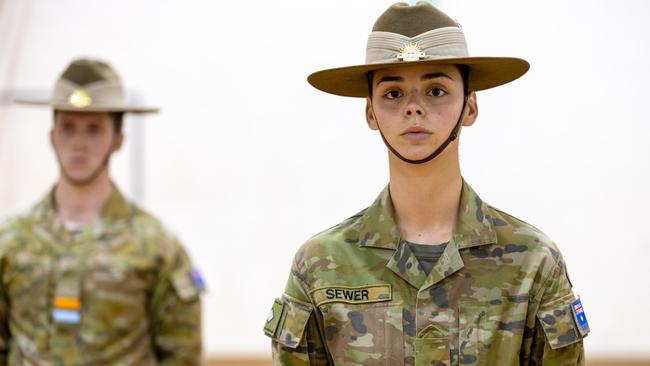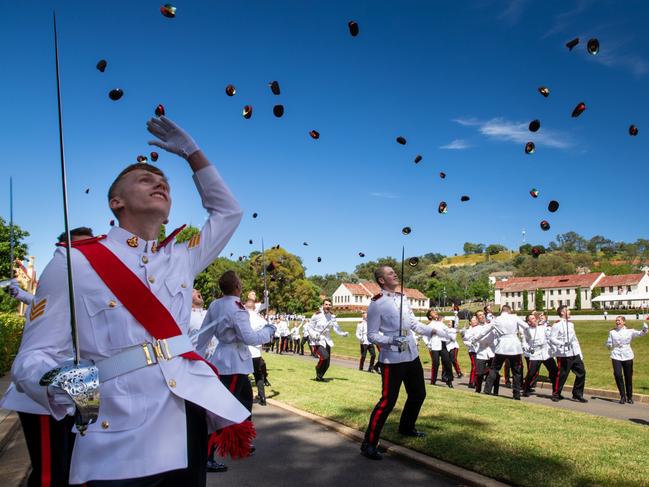Women to lead Australian Defence Force Special Forces operations following damning Brereton report
Not a single woman has ever passed Australia’s elite SAS process. But top army officials say that’s about to change.
National
Don't miss out on the headlines from National. Followed categories will be added to My News.
AFLW star Sabrina Frederick may have won selection on the high-rating television version of SAS Australia but in reality no woman has ever passed the actual Special Forces process in the Australian Defence Force.
But a rapidly evolving “hybrid warfare threat” in our region, technology and the damning Brereton Inquiry into war crimes in Afghanistan is set to see women take a lead in future Special Forces ops.
News Corp has learned a review currently underway is looking to de-Alpha male the ranks of the ADF’s elite soldiers in what remains the final area of the military women have so far been unable to conquer.

Figures obtained exclusively show of the 1346 Army applications received for the Special Air Services (SAS) selection in the past six years, since Army in 2014 opened up all officer and soldier combat roles to women, just 16 were women.
In that period there have also been 1365 applications for the 1st and 2nd Commando Regiments — seven of those were women.
But as of today none have completed the gruelling three stage requirements to become qualified for either regiment.
Qualification includes a three-week “extreme physical and mental” selection process that only 30 per cent of all candidates pass to go on to perform a 12-month “reinforcement training cycle”.

On average, over the past six years 80 per cent of candidates who started the SASR or commando reinforcement cycle were awarded their berets as qualified Special Forces.
The ADF is now reviewing its own selection processes in line with an evolving threat level and what attributes the elite soldier of the future may now need.
The shift has been supported by a review by former ASIO boss David Irvine into the state of the nation’s elite fighting force and in particular its command in tangent to the disturbing Brereton Inquiry into alleged war crimes during Special Forces deployment to Afghanistan.
The report found Special Forces commanders had allowed under their watch a warrior class of Alpha male competitiveness and “blooding” killing rituals that led to 25 soldiers complicit in 39 murders of local Afghans, 19 of which face potential murder prosecutions.
The ADF is currently, as a matter of urgency, looking at broadening selection criteria for Special Forces operators and supporters to “cover new capabilities to cope with strategic competition and grey zone warfare.”

Specifically, the Special Operations Command (SOCOMD) is looking at selection criteria and training and greater diversification of personnel “to include more women and people of diverse ethnic or indigenous backgrounds”.
“It may be necessary to create different pathways for women into all units of the Special Forces, greater use of direct entry selection for certain skill sets may also be warranted,” a review has concluded.
This was in part to also to reflect the “more diverse” situations the ADF will face that will require greater cognitive, technical and cyber skills that require direct SOCOMD recruitment.
Defence would yesterday not confirm it is reviewing Special Forces Command training or selections.

“While Defence has strategies in place to encourage greater participation of women, every candidate must meet the required entry standards to commence and continue recruit training to ensure successful candidates will have the capacity to do the work, do it safely and contribute to Defence capability,” a spokeswoman said.
“Defence will not spotlight women applying for, training for, or in combat roles. This ensures women are given the best opportunity to succeed without putting any additional pressure by spotlighting their career choice.”
SOCOMD currently has 9.5 per cent women, in a wide variety of supporting roles, including engineers, signallers, medics and doctors, pilots, psychologists, intelligence officers, lawyers, nurses, drivers, clerks, cooks and logisticians.




